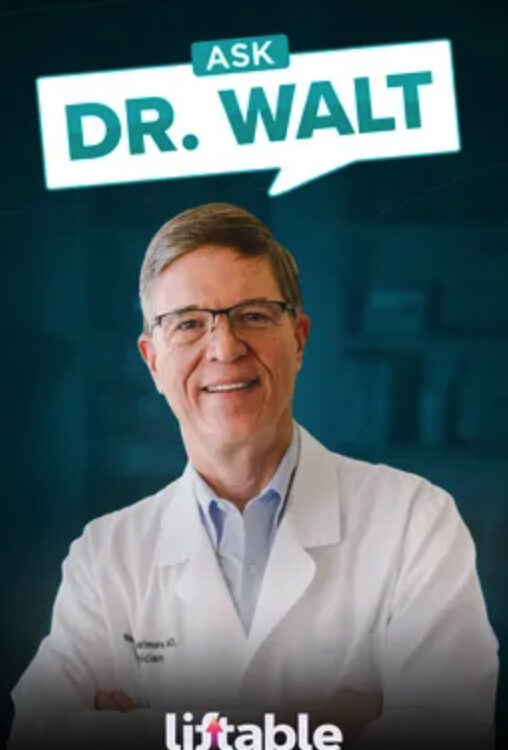Give Yourself the Gift of a Stress-Free Holiday
December 22, 2010Holiday Depression And Stress
December 24, 2010Last time, I began a Christmas story that came from my book Bryson City Seasons.

Here’s the second of three parts. I hope it will be a Christmas blessing for you and yours:
================================================
I passed through the lobby and went first to the X-ray suite. Carroll, the radiology technician, was there. He found the patient’s films and put them on the viewing box.
“Looks like an atypical pneumonia, Walt.”
I nodded. Carroll was as good at reading films as any radiologist I knew.
“I went ahead and did tomograms of the hilum,” he commented.
I nodded again, as Carroll was thinking just what I was—this pneumonia was probably caused by a cancer.
The tomographic X-ray allowed us to look at the area between the lungs—in this case, for lumps of cancer.
Carroll replaced the plain films with the tomograms. “But I don’t see any cancer. Maybe it’s a small-cell carcinoma.”
I smiled to myself. Small-cell cancer of the lung was a name that described a deadly type of cancer—but in no way did the name imply that it didn’t form masses that could be seen.
“Thanks, Carroll. I’d best go take a look at the patient.”
“He’s interesting, Doc, I’ll tell you that.”
Aren’t they all? I wondered to myself.
“Hi, Peggy!” I called out as I entered the nurses’ station. Peggy had been at the hospital for many years. She led the choir at the Presbyterian church when she wasn’t working at the hospital. She was married to Joe Ashley, a longtime ranger at the national park.
“Hi, Dr. Larimore. Here to see the new admit in ICU?”
“Yep.”
Our ICU was really just a former four-bed ward located close to the nurses’ station and converted into the place where we cared for our sickest patients.
“You gonna tell him what he’s got?”
“Guess I’d better figure out what it is first, don’t you think?”
Peggy smiled to herself. It wasn’t unusual for the nurses to know what was going on far before the doctors did, and in this case, Peggy, like Carroll, strongly suspected cancer.
She handed me the chart. The name on the front was Evan Thomas. Could this be the Evan that Ella Jo was talking about? I thought to myself.
As I entered the room, the patient looked worse than I could have imagined. He was fairly emaciated. The oxygen had normalized his color, but instantly I knew this was a very sick man.
Another man was sitting by Evan’s bedside. As I entered, he stood.
“Hi, I’m Dr. Larimore. I’m the doctor on call today.”
“I couldn’t be more delighted!” the man exclaimed. “My name’s Richard White. Evan and I know about you and your partner, Dr. Pyeritz. Ella Jo Shell often visits our shop and has told us so much about you both. We were hoping either you or he would be willing to care for us.”
“Richard, Evan, it’s good to meet you.”
I turned my attention to Evan, taking a complete history and then doing a complete physical. When I was through, I pulled up a chair. I always felt it was better to communicate face-to-face, and sitting with patients helped me accomplish that.
“Evan, I think you know you’ve got pneumonia.” He nodded. “But it’s not a typical pneumonia. It’s atypical. Given your weight loss and fatigue, I’ve gotta be honest with you.” I paused for a moment.
Evan reached out and took Richard’s hand. He looked fleetingly at his partner and then back to me. “Is it cancer?”
I nodded. “To tell you the truth, that’s my guess. We would need to do tests to be sure. But that’s what I suspect.”
“Is it treatable?”
“It depends on the type. But my guess is that it’s probably already widespread. So we’ll just have to see.”
“When can we start?”
“Well, let’s get the infection under control, and then we’ll talk about getting started.” I was quiet and let them absorb the information. When it was clear they didn’t have any more questions, I left the room.
The next morning was Christmas, and I made early-morning rounds—well before our children, Kate and Scott, would wake up to celebrate Christmas.
I found Evan alone but awake. I greeted him and sat on the bed. His breathing was labored and shallow.
“Evan, how are you feeling?”
“Not so good, Doc. Didn’t sleep well.”
“Seems you’re breathing harder than last night. I’d better get Carroll to take another X-ray.”
“He’s already been here—along with Betty the Vampire.”
I smiled at his reference to Betty Carlson, the director of our laboratory.
“Let me go take a look at it and let you know what I see, okay? Anything else I can do?”
“Doc, I’ve been told you’re a man of faith. I’ve also been told you’re a very good doctor. But I’ve got to tell you, I was worried about coming over here to see you.”
“Why’s that?”
Evan didn’t answer for a moment. Then he looked deeply into my eyes. “Doc, lots of Bible-thumpers call people like me evil and nasty things. I was worried you might think the same.”
Now it was my turn to be quiet for a moment. I was trying to think about how to respond to this man’s honesty and transparency. It was an unnerving moment for me. But, cautiously, I continued.
“Evan, my faith teaches me that the most important thing in life is a personal relationship with God. Everything else pales in comparison to that. And I found that when I began that relationship with God, he was fully able and willing to guide me into doing and thinking the right things. So the real issue isn’t what I think or what you think, but what he thinks.”
Evan smiled, and I saw tears forming in his eyes. “When I was a kid, church was important to me. I really enjoyed going—but never did I enjoy it more than on Christmas Eve. But when I grew up I just grew away from it. Do you think your God would even want a relationship with me?”
For a moment I thought about the Bible verse “Always be prepared to give an answer to everyone who asks you to give the reason for the hope that you have. But do this with gentleness and respect.”
I was pleased Evan felt comfortable enough to ask. But I’d always been taught in medical school that it was unethical to discuss religion with patients.
However, Evan had asked—in essence, he had given me permission to share with him. So I decided to proceed—albeit carefully and very uncomfortably.
Spiritual discussions were simply not something I had been trained to provide in the medical environment, but I’d begun to carefully incorporate them into my practice during my first year in Bryson City.
Furthermore, a still, small whisper was encouraging me to harvest this opportunity to share an intimate part of myself with a very, very sick patient.
================================================
================================================
The Bryson City series includes:



